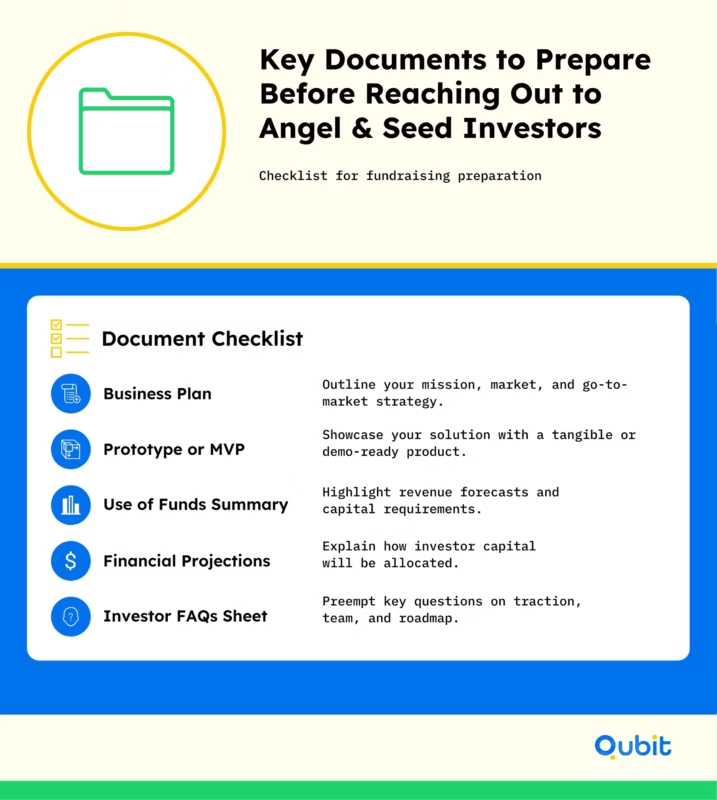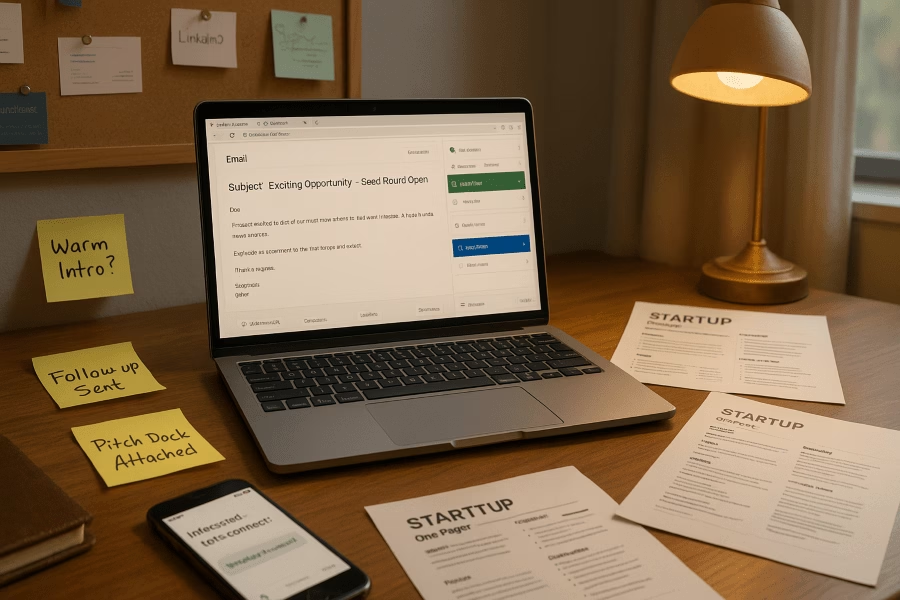Recently, pre-seed rounds accounted for more than 20% of global venture deals. This marks substantial growth in early-stage participation. hese individuals provide crucial early-stage capital when traditional financing isn't available, typically targeting high-growth startups.
To connect with angel investors, research their portfolio interests, prepare a focused pitch, and seek warm introductions through your network or industry events.
The trade-off is significant: angels invest in unproven ventures and may take equity stakes up to 40%. Beyond capital, however, they often provide mentorship, industry connections, and strategic guidance that can be just as valuable as their investment.
Why Angel Investors Are a Game-Changer for Your Startup
Securing funding is one of the biggest hurdles for any early-stage venture. Angel investors not only inject capital but also deliver a suite of advantages that can redefine your startup’s growth trajectory:
Most angel investors are individuals with significant incomes and net worths. Typically, they earn $100,000+ annually and have a net worth that is ten times their income. This demographic profile helps founders identify potential investors who are financially equipped to support their ventures.
Lower Financial Risk & Greater Flexibility
- Unlike debt financing, angels don’t require repayment if your startup fails.
- Frees you from immediate cash-flow pressures and lets you focus on product-market fit and scaling.
Strategic Guidance & Mentorship
- Many angels are veteran entrepreneurs who’ve “been there, done that.”
- They help you anticipate pitfalls, refine your business model, and make smarter decisions.
High-Value Networking
- Access to their professional networks—potential customers, partners, and future funding sources.
- Accelerates market entry and amplifies your credibility in competitive spaces.
Founder-Friendly Terms
- More flexible deal structures than typical venture capital (VC) rounds.
- You retain greater equity and autonomy over company direction.
If your network feels thin, start with how to find angel investors to turn alumni groups, founder forums, and niche events into real leads.
Evaluate Investor Compatibility
Finding the right investor starts with assessing compatibility. Investors often look for alignment between their interests and your business goals. For example, if your startup focuses on climate tech, targeting investors with a history of supporting sustainable ventures increases the likelihood of a successful partnership.
If an investor's interests do not align with your goals, consider seeking alternate candidates or adjusting your approach. Additionally, understanding investor priorities is crucial. Research shows that 63% of angel investors emphasize founder-market fit, meaning they want to see how well your expertise aligns with the market you're entering. This alignment not only builds trust but also demonstrates your ability to navigate challenges in your industry.
Building relationships with such investors through effective angel investor outreach can be a game-changer for startups aiming to secure funding.
Conduct Thorough Research
Securing pre-seed funding is highly competitive. Only about 20% of startups close a pre-seed round within their first year. This highlights why researching investor fit and timing is crucial.
Before reaching out, invest time in researching potential investors. Start by identifying their demographics, investment preferences, and past funding activities. Platforms like Crunchbase or AngelList can provide valuable insights into their portfolios.
Networking opportunities also play a significant role in uncovering potential leads. Attending investor networking events can help you establish connections and gain warm introductions to angel investors. These gatherings are ideal for building relationships and understanding investor expectations firsthand.
Identify Sources of Investor Outreach
There are multiple channels to connect with angel and seed investors. Networking events, accelerator programs, and personal branding are among the most effective strategies.
Accelerator programs, for instance, offer structured opportunities to showcase your startup to investors. By joining such programs, you can enhance your visibility and credibility. Learn more about the benefits of accelerator programs to understand how they can boost your outreach efforts.
Personal branding is another powerful tool. Establishing yourself as a thought leader in your industry can attract investors who resonate with your vision.
Comparing Investor Outreach Channels
| Channel | Efficiency | Personalization Potential |
|---|---|---|
| Networking Events | Moderate, depends on event quality | High, enables direct relationship building |
| Accelerator Programs | High, structured introductions | Medium, less tailored to individual investors |
| Online Platforms | Very high, scalable outreach | Low to medium, often less personal |
| Personal Branding | Long-term, cumulative effect | High, attracts aligned investors organically |
Prepare Key Documents
Investors expect thorough preparation before engaging in discussions. Essential documents include:

- Business Plan: A detailed overview of your startup's mission, market analysis, and growth strategy.
- Prototypes or MVPs: Demonstrating your product's functionality and potential impact.
- Financial Projections: Clear budgeting and revenue forecasts to showcase your startup's scalability.
Having these materials ready ensures you can answer investor questions confidently and demonstrate your commitment to success.
Using SAFEs and Convertible Notes in Seed Rounds
Building on the importance of preparation, founders should understand the value of standard legal instruments like SAFEs and convertible notes. These tools simplify early-stage fundraising by reducing negotiation complexity and speeding up deal closure.
Using widely recognized agreements also protects founder interests and aligns expectations between parties. Familiarity with these instruments can make your funding process more efficient and investor-friendly. For reference, standard seed round sizes range from $500,000 to $3 million. Typical post-money valuation caps now reach $17 million. Preparing detailed documents supports these funding benchmarks.
Craft an Effective Pitch
Your pitch is your chance to make a lasting impression. To stand out, focus on creating a concise, data-backed presentation that highlights your value proposition.
Start by addressing the problem your startup solves, followed by your unique solution. Use real-world examples or case studies to illustrate your impact. For instance, ClimateAI successfully utilized syndicates to secure funding and expand their investor network. This approach not only expedited their funding process but also showcased their ability to collaborate effectively.
Rehearse your pitch multiple times to refine your delivery and anticipate potential questions. Remember, clarity and confidence are key to winning investor interest.
Maintain Patience During the Decision Process
Investor decisions often take time, requiring patience and persistence. Following up respectfully is essential to keep the conversation alive without appearing overly aggressive.
The Role of Transparency and Ethics in Investor Relations
This foundation of patience should be paired with transparent and ethical communication throughout your fundraising journey. Consistently sharing honest updates and addressing challenges openly builds trust with investors. Professional conduct during negotiations signals reliability and increases the likelihood of future support. Upholding these standards can set your startup apart in a competitive funding environment.
Consider sending updates on your startup's progress or sharing relevant industry news to maintain engagement. Building a rapport with investors can lead to long-term relationships, even if immediate funding isn't secured.
Mentorship can also play a role in enhancing your investor relationships. Explore the advantages of mentorship benefits in networking to understand how guidance from experienced professionals can strengthen your outreach strategy.
By following these steps, founders can approach angel and seed investors with confidence, ensuring their startup is well-positioned for funding success.
Conclusion
Securing funding from angel and seed investors requires a strategic approach. By focusing on crafting a compelling, narrative-driven pitch deck and preparing thoroughly for investor meetings, founders can significantly increase their chances of success. Clear communication of your startup’s vision, backed by well-organized materials, demonstrates professionalism and builds investor confidence.
Implementing the actionable steps outlined in this blog, such as identifying the right investors, tailoring your outreach, and refining your pitch, can set your startup on a path toward meaningful partnerships. Remember, persistence and preparation are key to turning opportunities into results.
If you’re ready to take the next step, we invite you to explore our Fundraising Assistance service. Let us help you secure the backing your startup deserves.
Key Takeaways
• Angel investors provide early-stage startups with both capital and mentorship.
• A clear, structured outreach strategy boosts success when contacting angels and seed investors.
• Thorough preparation—a focused pitch deck and complete documentation—improves funding odds.
• Strong networking skills and personal branding enhance investor engagement.
• Patience and respectful follow-up are vital throughout the decision-making process.
Frequently asked Questions
What documents do I need when contacting seed investors?
When contacting seed investors, prepare a business plan, financial projections, and an MVP or prototype. These documents show your startup’s scalability and growth potential.






